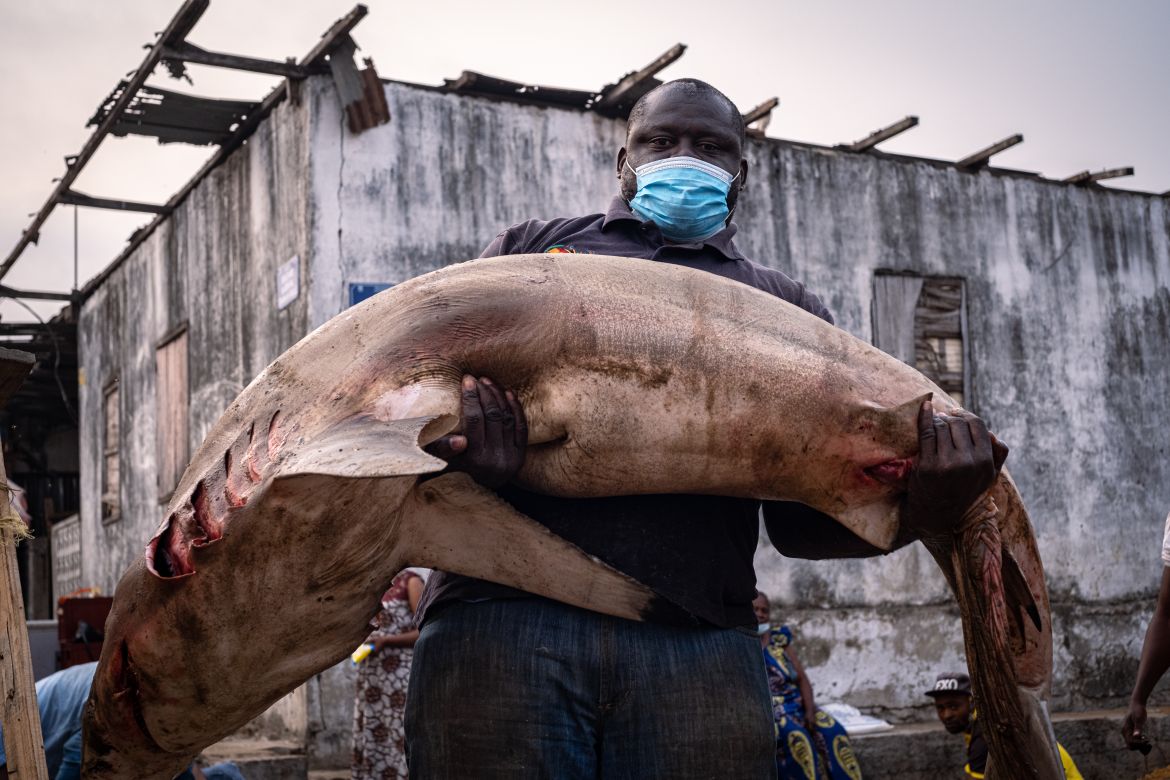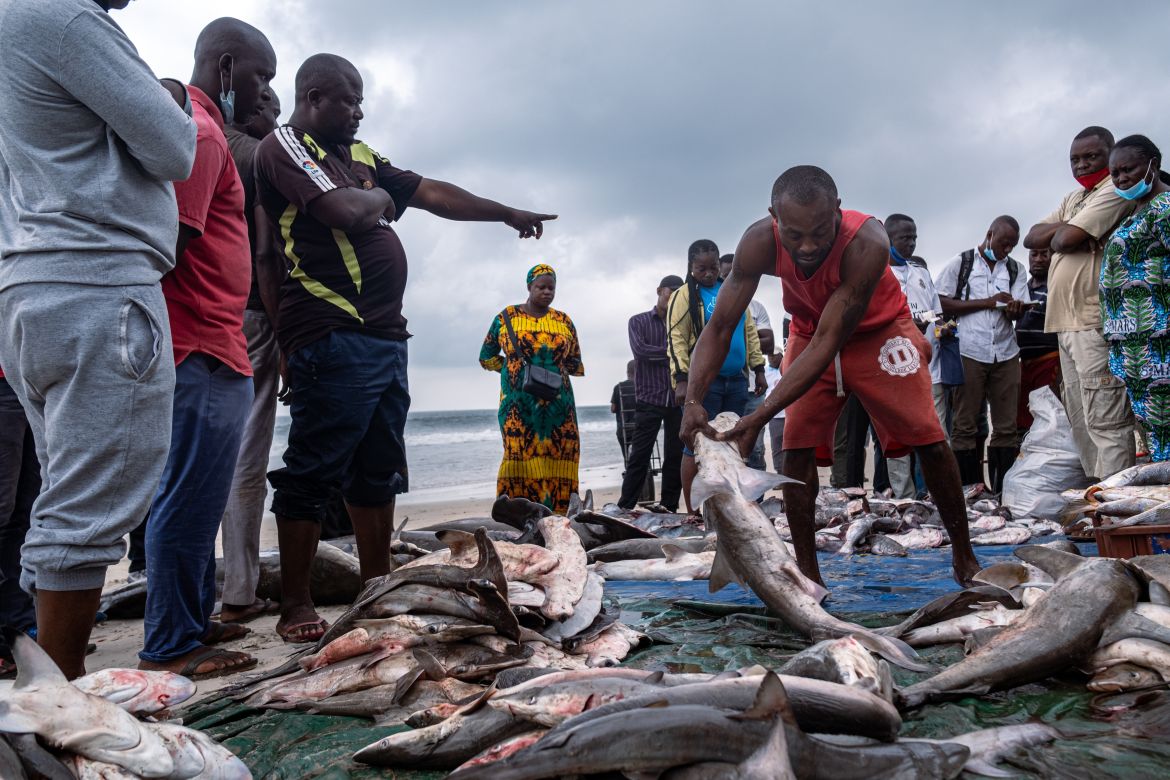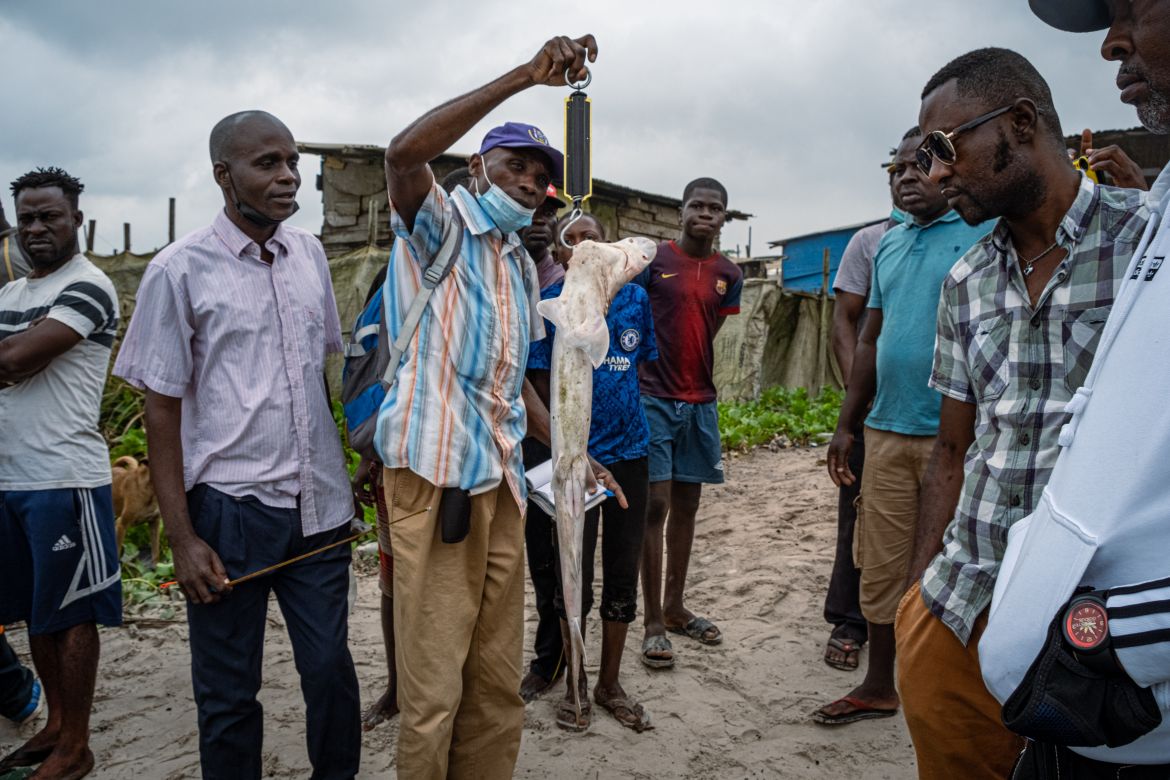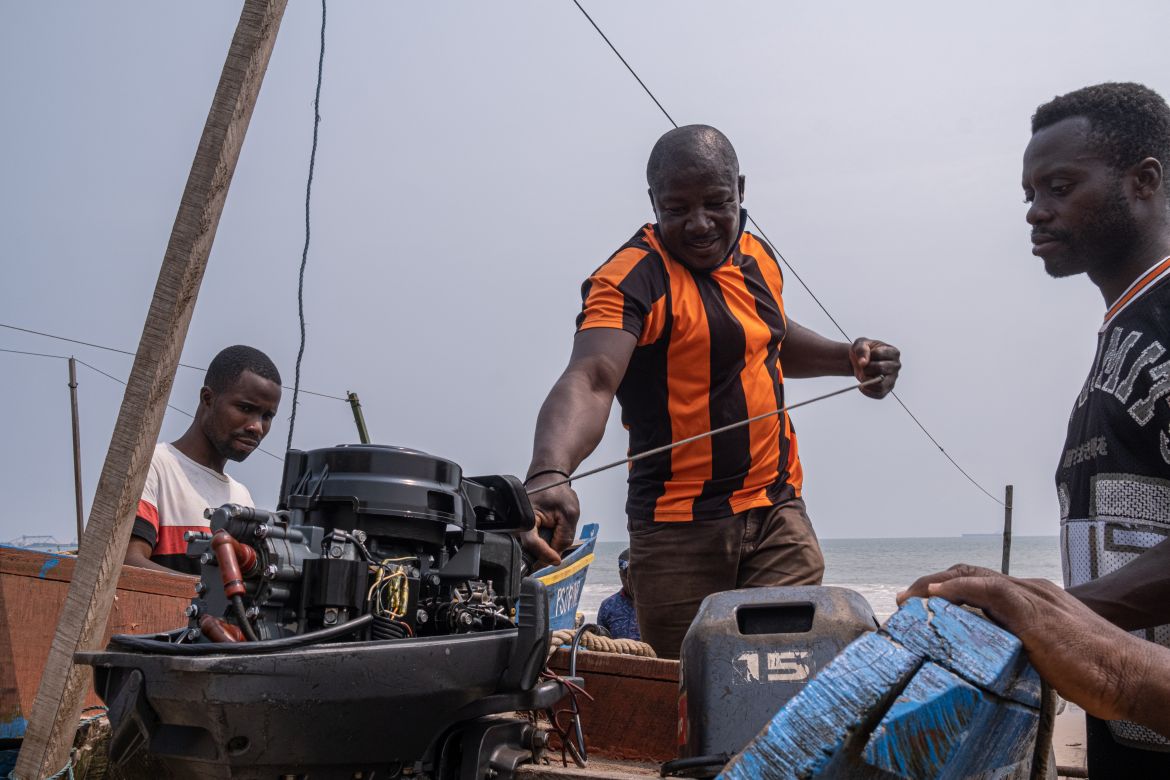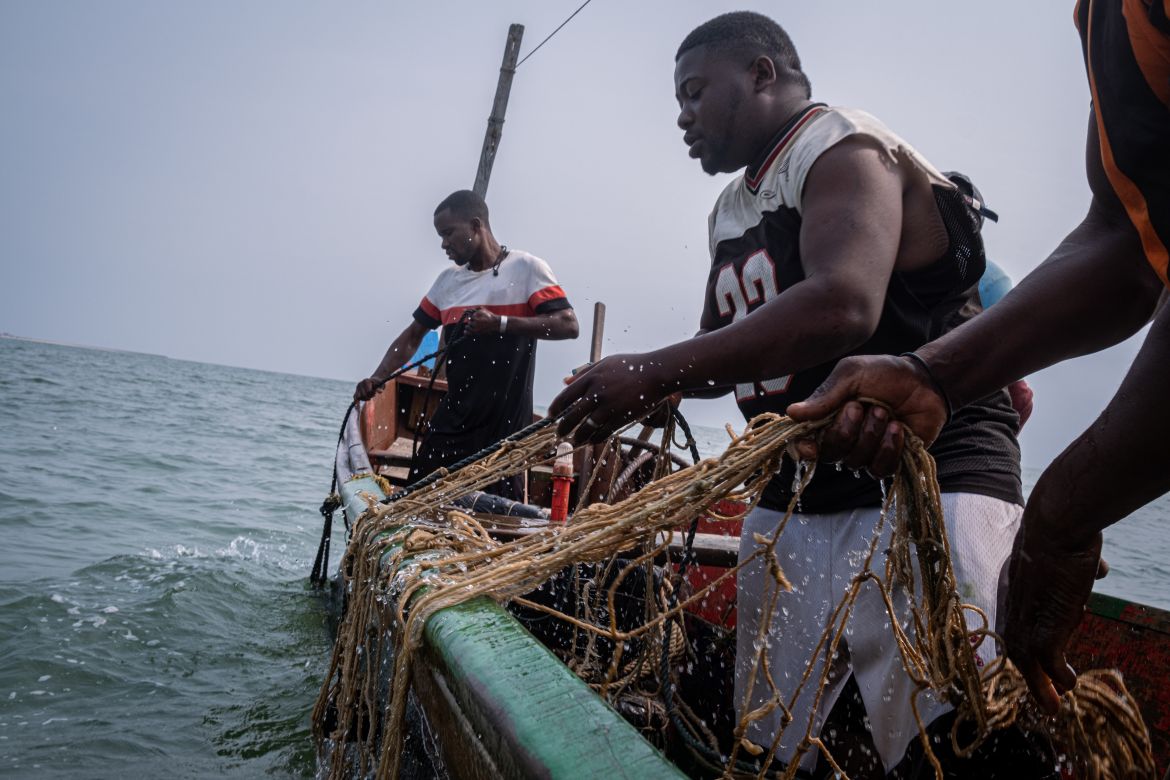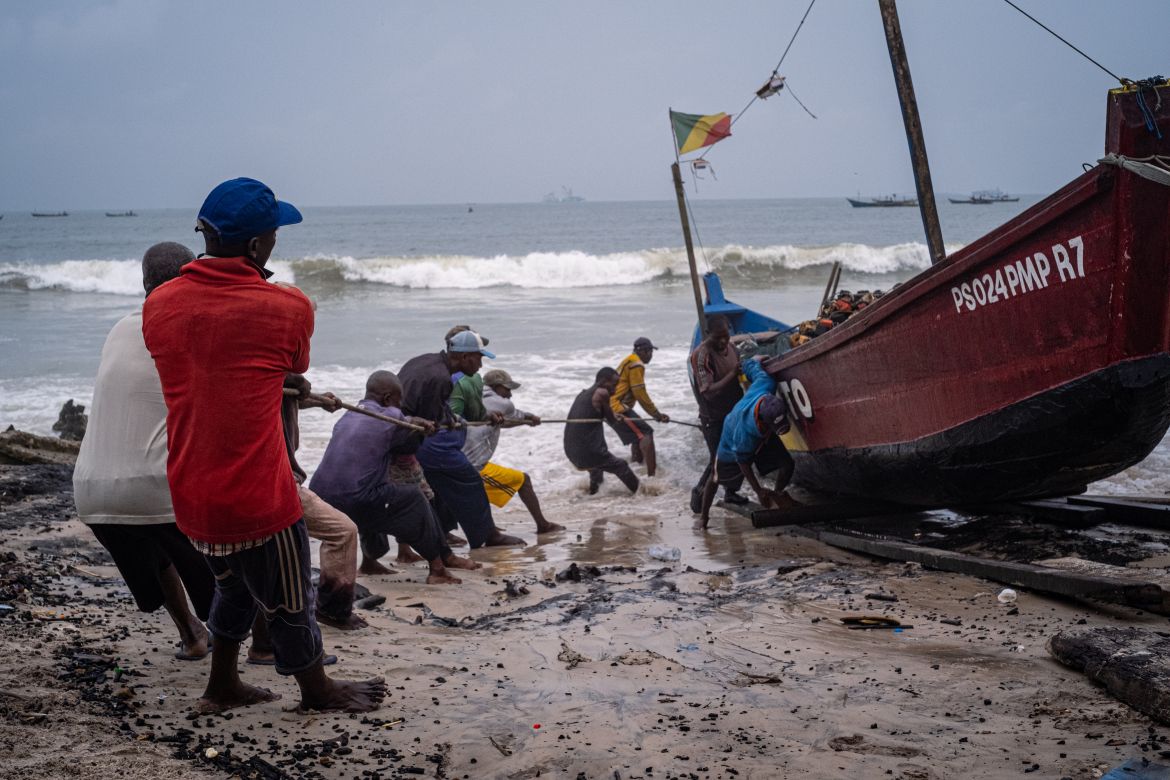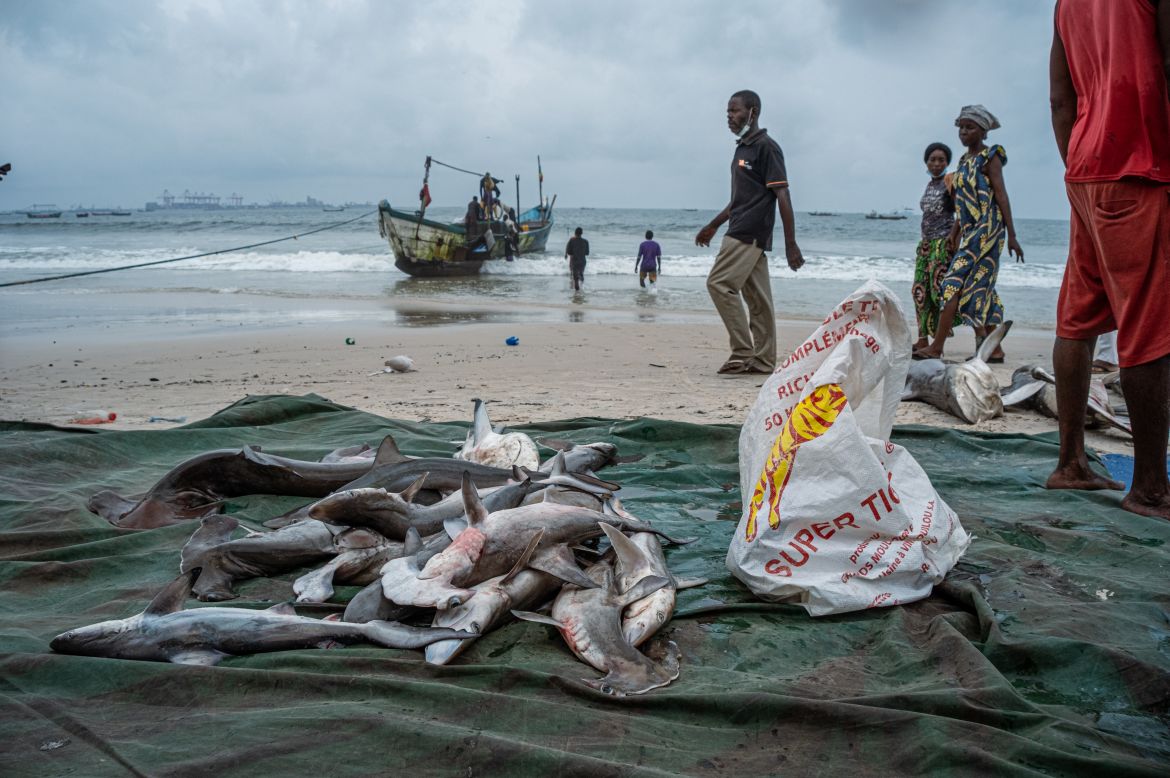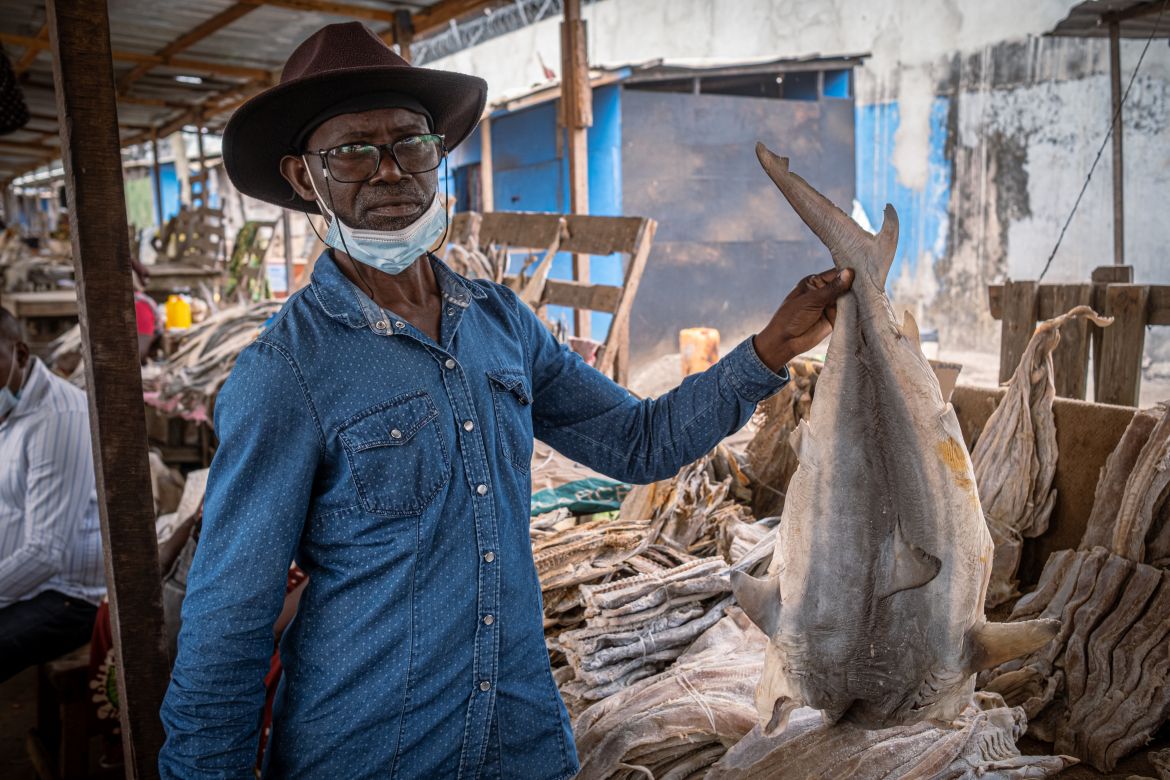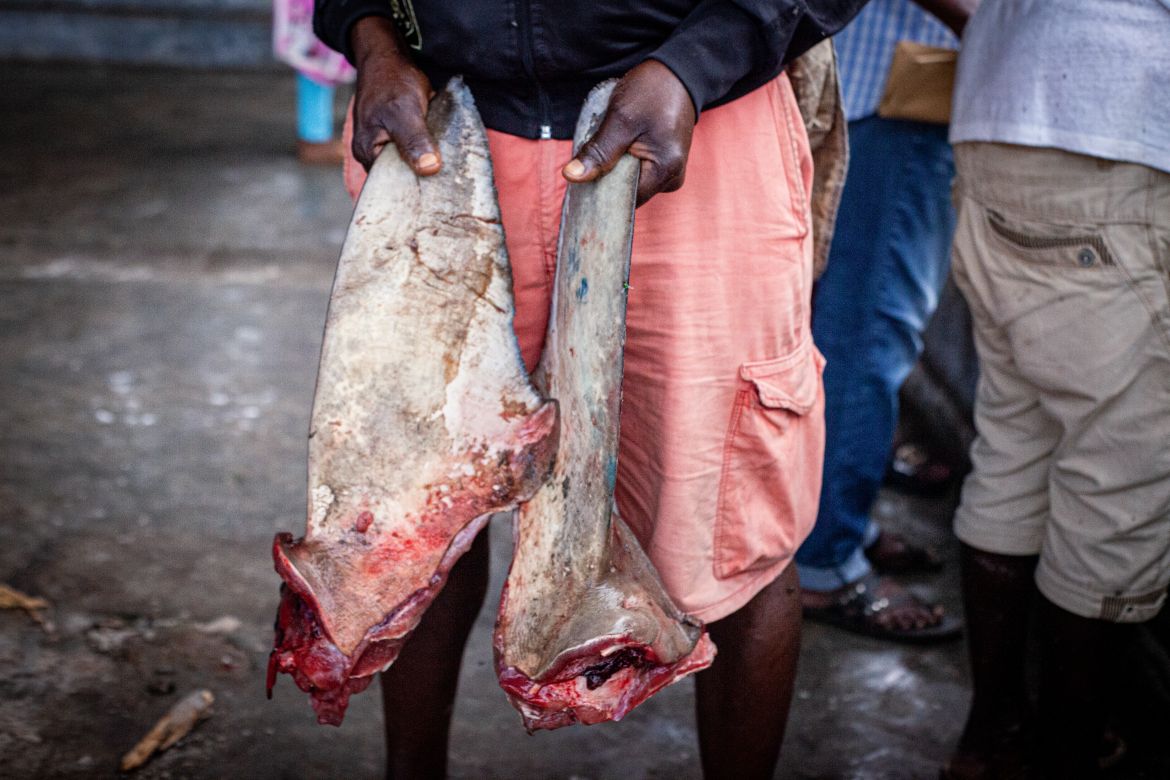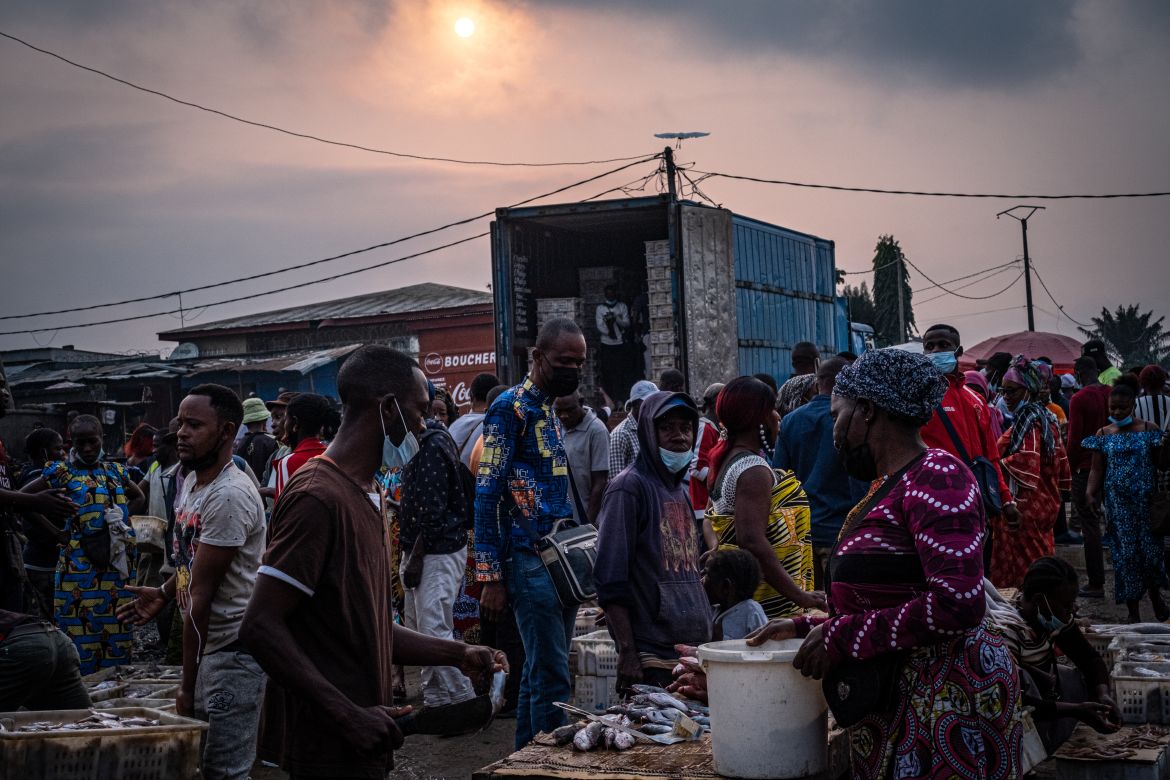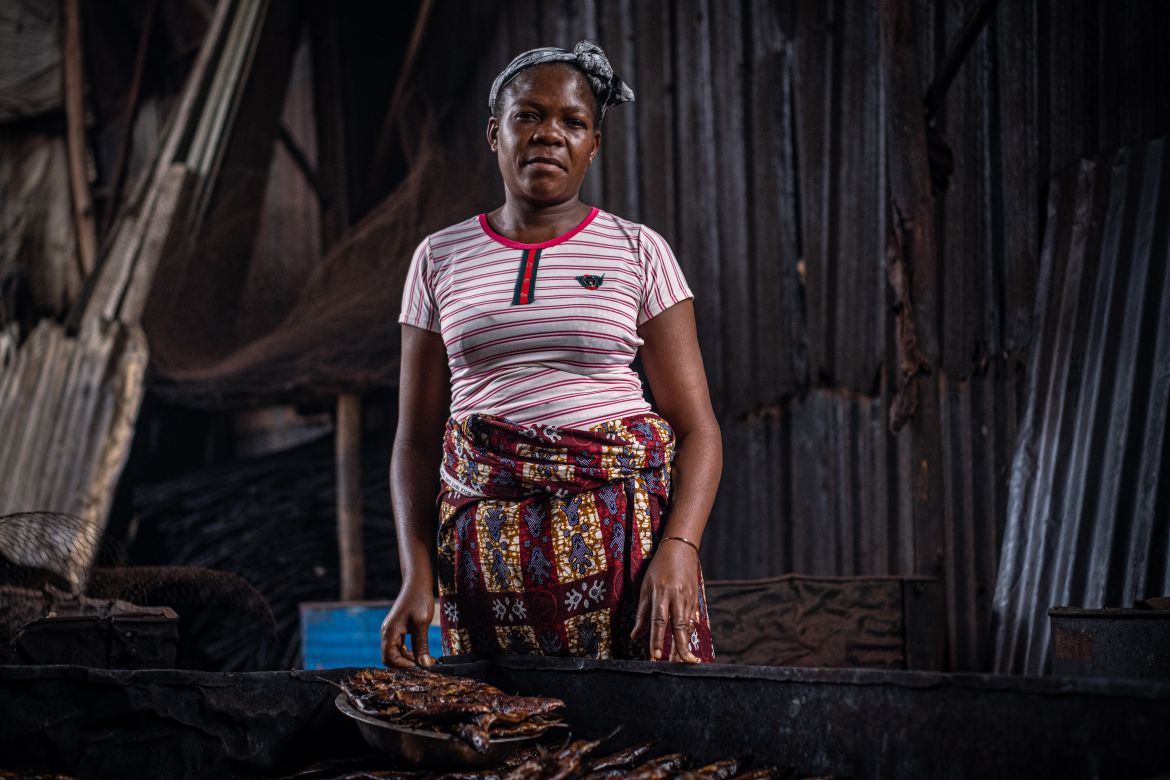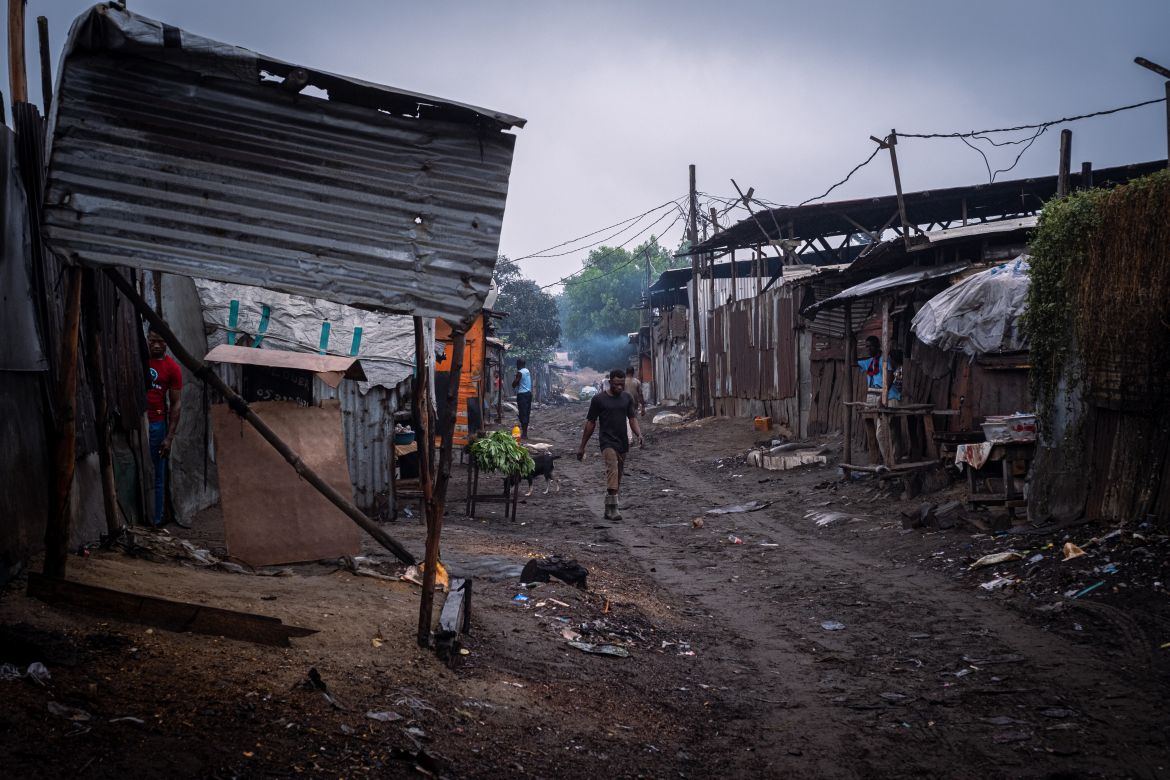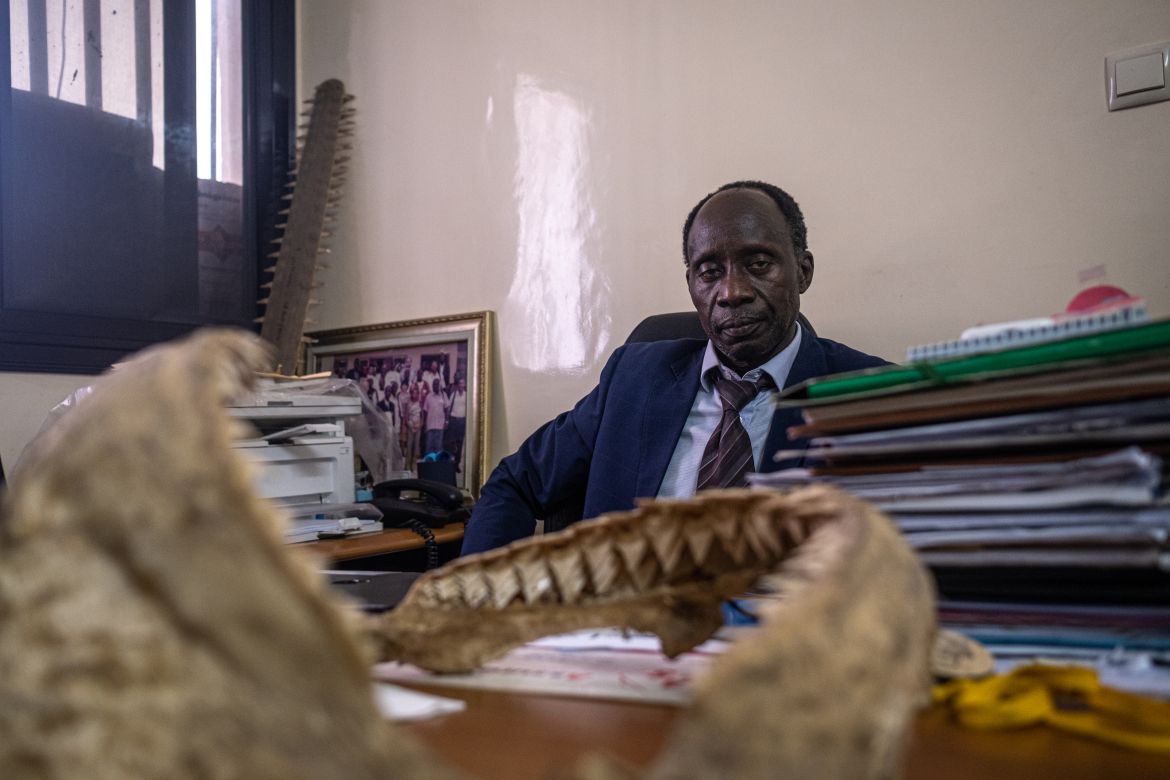In Pictures
In Pictures: The rise of shark fishing off the Congolese coast
Artisanal fishers have focused more on shark fishing off the coast of the Republic of the Congo in recent years.
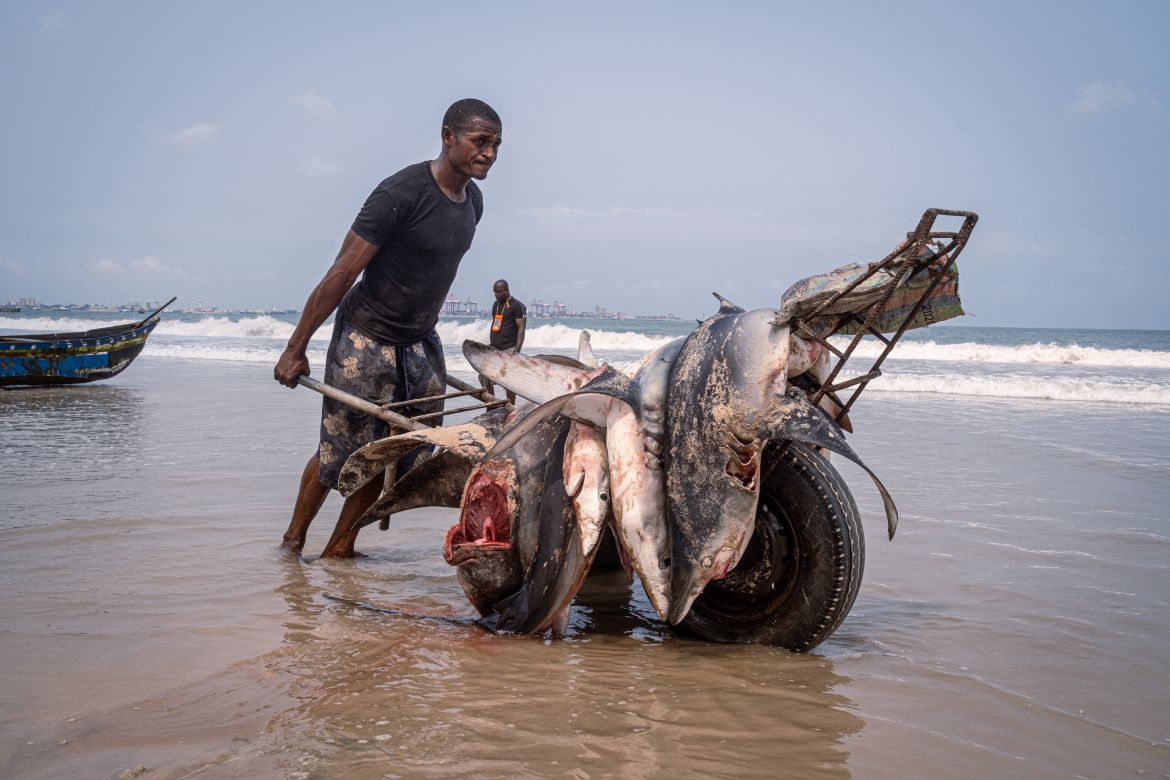
Pointe-Noire, Republic of the Congo – With the rise of industrial fishing off the Congolese coast, artisanal fishing crews have increasingly focused on shark fishing to make a living.
Shark fishing is not new, reportedly shark fishing crews went out on narrow, canoe-like pirogues as far back as the 1980s but the phenomenon has increased steadily in the past two decades, and activists warn the practice is becoming unsustainable.
Other factors have driven this boom, including the construction of offshore oil infrastructure that has reduced the areas where artisanal crews can fish just as more industrial fishing meant greater competition.
And the continuing demand for shark fins in parts of Asia makes shark fishing lucrative.
The artisanal shark fishers go far out to sea, throwing nets overboard just before sunset and drawing the sharks in with bait and blood during the night.
On most days, hundreds of sharks are dumped along the beach of Songolo in the fishing district of Pointe-Noire, where they are sold on the spot. Many are hammerhead, bigeye thresher, silky, and mako sharks – all endangered species.
In addition, many of the sharks being caught are not fully grown, according to Jean-Michel Dziengue, a Congolese activist at the environmental NGO Bouée Couronne, who says many are juvenile or small.
“The trend affects the entire fish resource. In markets, fish are getting smaller and smaller. It’s a sign that people are fishing in spawning areas,” he said.
According to a 2017 survey by the NGO Traffic, 95 percent of the sharks caught in the Republic of the Congo (1,767 tonnes) came from artisanal fishermen – accounting for one-third of their annual catch.
Dozens of shark species are caught in the country, including seven listed on Appendix II of the Convention on International Trade in Endangered Species and considered endangered by the International Union for Conservation of Nature.
Dziengue feels the fishers’ move towards shark fishing can be attributed to the uncontrolled expansion of industrial fishing.
“First, fishing areas were reduced by two-thirds by offshore oil exploitation. Then foreign industrial vessels increased particularly after 2005 when they jumped from 24 to more than 70 in just a few years, and starting fishing without limits even in spawning areas. The artisanal fishermen were slowly pushed into a corner,” he said.
According to Traffic, in a maritime area where a maximum of 30 licences should be issued to industrial vessels, as many as 110 vessels were sailing in 2018. This number has fallen to about 80 vessels, according to Congolese authorities.
Dziengue said authorities lack the means to enforce laws to prevent overfishing by industrial trawlers. “The authorities have only one patrol boat for the entire coast,” he added.
According to a recent study published by Current Biology, one-third of the world’s shark and ray species are at risk of extinction due to overfishing and the number of species of sharks and rays facing “global extinction crisis” doubled in a decade.
Senegalese shark biologist Mika Samba Diop told Al Jazeera sharks were beginning to disappear from African seas in which they were previously common.
“Sharks are ‘the gendarmes’ of the marine ecosystem balance, they are long-lived but have weak fecundity. If they are fished intensively, severe damage is generated,” he said.
